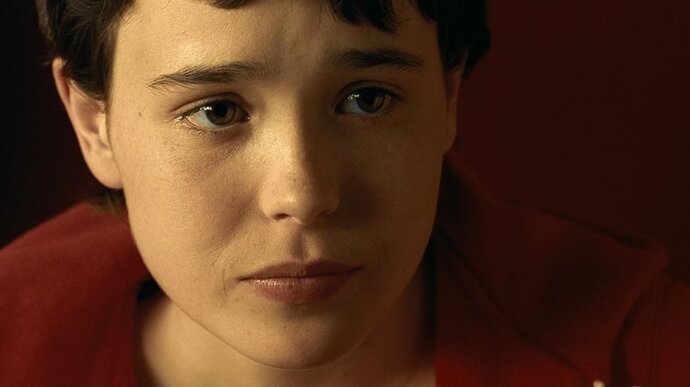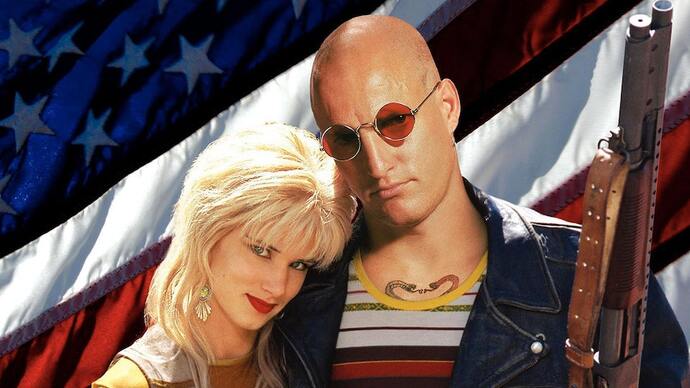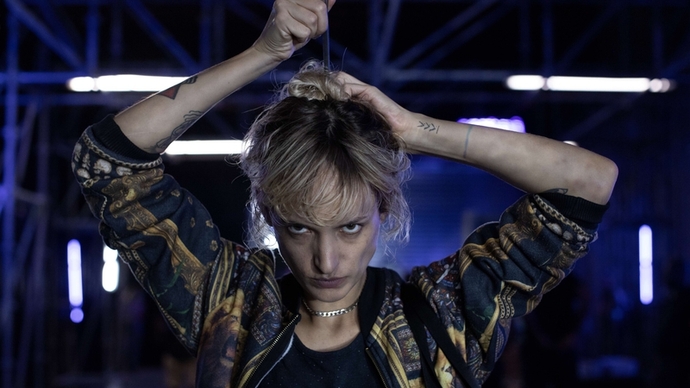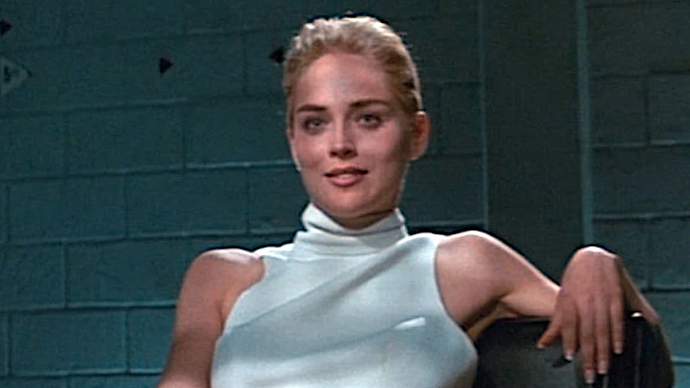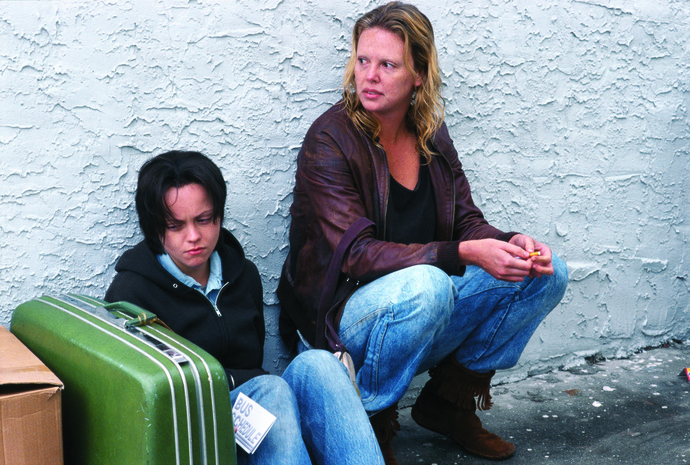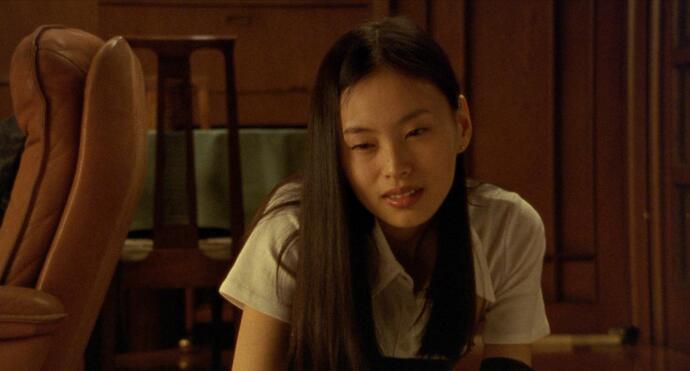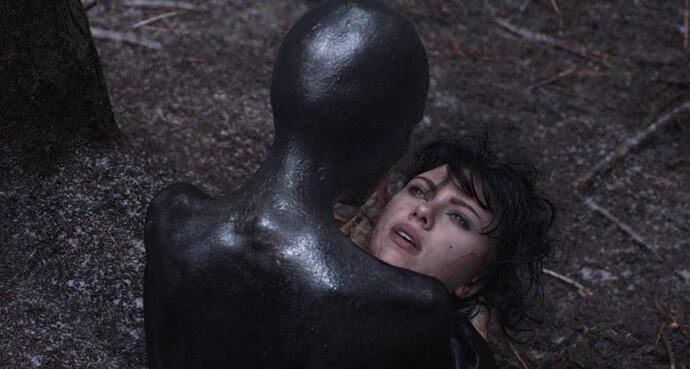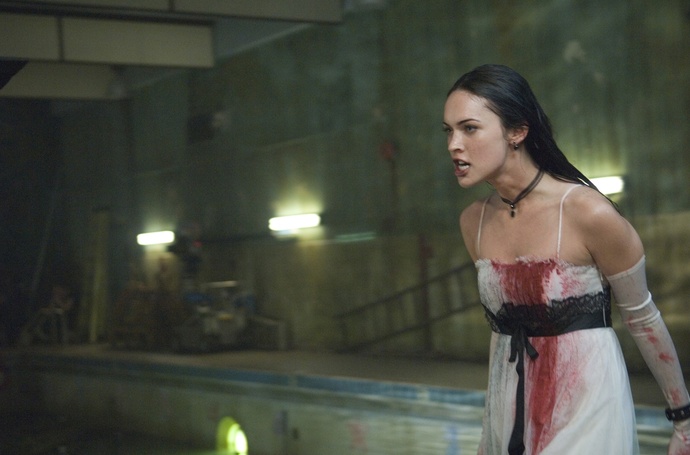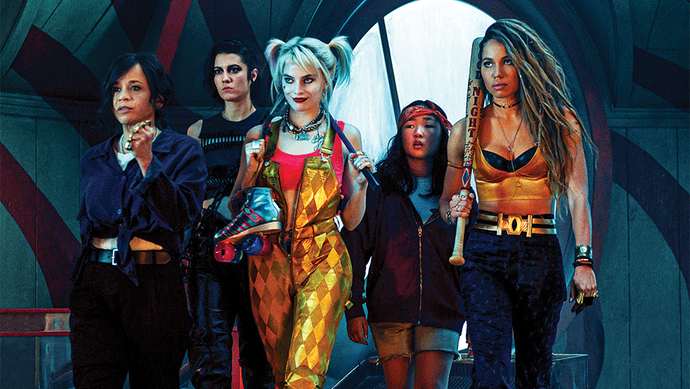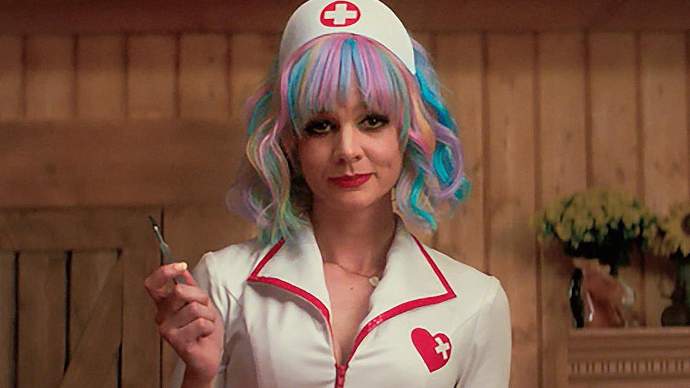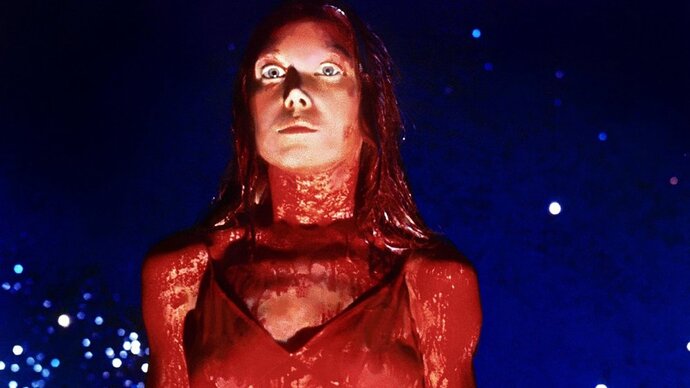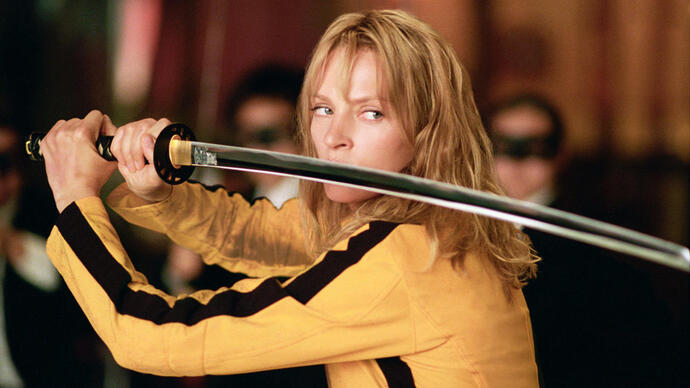But where do women fit into all of this? From No Country for Old Men to The Silence of the Lambs, men have always been the most notorious of killers in cinema. Aren’t women just as capable of murder? Over the past few decades, we’ve seen more and more female characters take the lead in kill-heavy plots. Here are our picks for the best female killers and murderers—real and fictional—throughout cinema history.
12. Hayley Stark (Hard Candy)
Hayley Stark is a 14-year-old killer with a conscience. Sure, she seems young and naïve, but she’s actually a well-researched vigilante who’s clamping down on sexual predators. In Hard Candy, her target is a 32-year-old photographer who uses chatrooms to flirt with teenage girls. This time, he messages the wrong one. Elliot Page was only 17 years old and a relatively new kid on the block when he gave his impressive performance as Hayley, keeping up with—and even surpassing—his co-star Patrick Wilson with his screen presence. Murder is never okay, but when Hayley starts prepping for a castration operation, we couldn’t help but cheer. David Slade directs this controversial psychological thriller.
11. Mallory Knox (Natural Born Killers)
Mallory Wilson Knox is technically one half of a serial killer duo, but she definitely steals the show. Played by Juliette Lewis (alongside Woody Harrelson), Mallory is a lovably manic redneck who beats any man who tries to touch her. You go, girl! Oh, and she also murders 52 people in a killing spree. But, still… She had a bad childhood, so that makes up for it, right? Lewis later explained how the project was perfect for her at the time because she was going through a “nihilistic rite of passage phase.” The sensationalism and questionable themes in Natural Born Killers weren’t there purely for entertainment—director Oliver Stone used them to critique modern media. And don’t forget that Quentin Tarantino wrote the screenplay, which tells you how bloody it gets.
10. Alexia (Titane)
There are tens—maybe even hundreds—of horror subgenres out there, and one of those subgenres is body horror. Titane embraces what the subgenre is about: grotesque mutilations, weird diseases, even zombification. Showgirl Alexia had a titanium plate fitted into her head as a kid, and she later gives birth to a baby that’s half car. (Yep, you read that right!) But as silly as that sounds, Titane is actually quite serious. Agathe Rousselle knocks it out of the park as a murderer on the run, putting herself through agony to hide her metal-baby bump. French cinema is king of the bizarre and avant-garde, and Titane certainly isn’t to everyone’s taste. Critics, however, adored Julia Ducournau’s feature debut—and she was the second female director to win the Palme d’Or at Cannes. That’s double the female power!
9. Catherine Tramell (Basic Instinct)
Catherine Tramell (Sharon Stone) is a master of using her sexuality to get out of trouble. She’s the prime suspect behind her boyfriend’s death, but she’s even able to seduce the detective leading the homicide case. Paul Verhoeven’s neo-noir erotic thriller received mixed reviews at the time, but is now considered a milestone for queer cinema. Unclear sexualities mix with unclear motives and unclear feelings. Affairs, murderers, and crime novels that parallel reality all lead Detective Nick Curran (Michael Douglas) on a wild goose chase. It’s a goose chase we tag along with, and the red herrings and ominous ending make Basic Instinct an engaging puzzle for us to solve, with Catherine at the center as she plays us all.
8. Aileen Wuornos (Monster)
Charlize Theron made herself unrecognizable by plucking her brows, frying her hair, and bloating out to depict real-life serial killer Aileen Wuornos. But Aileen had noble motives: she was targeting her male clients from when she was a street prostitute. Yeah, this all really happened. Aileen was arrested in 1991 and found guilty for six counts of murder. In Monster, director Patty Jenkins takes us through the tumultuous decade leading up to her trial. Charlize Theron’s performance was the focal point of praise in this empathetic crime biopic, cited as “one of the greatest performances in the history of the cinema” by top critic Roger Ebert. Christina Ricci also stars as a semi-fictionalized version of Aileen’s girlfriend, who is “cluelessly dim” against Aileen’s unstable behavior. Some disliked Monster’s portrayal of victims as villains, but when the killer is the protagonist, obviously it’s going to be shown from her point of view!
7. Asami (Audition)
For a Japanese film, Audition (or Ōdishon) did incredibly well among Western viewers. After winning a bunch of awards, Audition became a J-horror classic from the same production company that made Ringu a year before. Audition had a huge influence on horror filmmakers to come with its slow-burning story of tragedy and its economical use of gory spectacle. Much of the film plays out like a standard drama—up until a Saw-like scene suddenly butts in. What’s interesting about Audition is that it somehow manages to be both feminist and misogynistic at the same time. While fiancée-turn-torturer Asami (Eihi Shiina) is initially objectified in the film, director Takashi Miike rebalances this with her eventual revenge. Audition can be read as a hyperbolic warning against what a patriarchal society can lead to. Innocent and beautiful as Asami seems, she sure is terrifying when she brings out those needles.
6. The Female (Under the Skin)
Partially based on Michel Faber’s 2000 novel, Under the Skin is a one-of-a-kind sensory experience that spent over a decade in development. Director Jonathan Glazer takes sci-fi to the next level by showing us an alien woman’s story from an inhuman perspective. How? By taking us into a void of black liquid where men are lured to death. Scarlett Johansson is the only big name amid a cast of unknown actors. She plays an alien woman who isn’t from our world, and is—for some reason—seducing Glaswegian men into the abyss. Hidden cameras and special effects make Under the Skin an illusionary watch that’s light on plot information. Under the Skin was perhaps too weird for the box office, but it’s now considered one of the greatest films of the century. You don’t have to understand it to enjoy it.
5. Jennifer (Jennifer’s Body)
Megan Fox was already a beloved girl boss before she starred in Jennifer’s Body, but the black comedy horror cemented her status. In a post-#MeToo world, Karyn Kusama’s cult flick about a possessed high schooler named Jennifer who’s rampaging through the guys in her class is considered a great piece of feminist cinema. Jennifer’s best friend Anita (who also lowkey fancies her, played by Amanda Seyfried) is the only one who recognizes the demon and tries to stop her. It’s far from the scariest horror film around, but Kusama does deliver a fun and poppy slasher with some surprisingly witty lines. Fox eats her way through her starring role with confidence and charm, carrying Kusama’s revenge-fantasy in this American teen version of Audition. Jennifer: “No, I’m killing boys.”
4. Harley Quinn (Birds of Prey)
Birds of Prey (and the Fantabulous Emancipation of One Harley Quinn), as it’s formally titled, is an all-girl powerhouse of chaos, revenge, and sleepovers. The slow box office start was blamed on a lack of interest in a female-led spin-off to Suicide Squad, but Margot Robbie stole the stage and gave us all something we weren’t expecting. Unlike her hypersexualized image in Suicide Squad, this Harley Quinn rocks jumpsuits and shorter pigtails to cater to the female gaze. Birds of Prey might be an SFX-heavy, action-packed DC comic movie, but it does have some depth. Somehow, Robbie manages to make a conventional comic book villain feel like a heroic big sister. For all its anarchic violence, Birds of Prey is inventive, daring, and cleanly directed by Cathy Yan. The camera moves with purpose, and Yan’s vision plaits all its senselessness into something cohesive—even meaningful.
3. Cassie (Promising Young Woman)
Promising Young Woman couldn’t have come at a more opportune time than 2020. Unlike the old-school misogyny of dowries and suffrage, today’s women have different issues to face—like spiked drinks and leaked videos. Emerald Fennell’s dark comedy follows Cassie, a medical dropout who now makes coffee by day and feigns drunkenness to trick creepy men into bed by night. At the center of it is Carey Mulligan, who perfectly plays Cassie as a fierce wolf in sheep’s clothing. For all its pink fluffy aesthetics, Promising Young Woman puts a harsh spotlight on what it means to live in a world led by Harvey Weinsteins. Fennell shows us how it’s not just cases of embarrassment or lost jobs but victims committing suicide from their trauma.
2. Carrie White (Carrie)
The 70s and 80s were a golden age for the horror genre, but most of its villains were men. In Carrie, Carrie White (Sissy Spacek) might not have started off as the baddie, but she ended as one. When school bullies and strict parents push Carrie to the brink of a breakdown, she discovers that she has special powers of telekinesis. How unfortunate for everyone else! The image of 16-year-old Carrie covered in blood became a symbol of supernatural feminist horror. Director Brian De Palma takes teenage angst to the extreme in this crudely shocking film that stays with you.
1. Beatrix Kiddo (Kill Bill: Volume 1)
Obviously, the first thing to come to mind when you hear “female movie killers” should be a samurai sword and a yellow outfit. Beatrix Kiddo AKA Black Mamba isn’t just the deadliest woman in the Quentin Tarantino cinematic universe; she’s a staple Halloween costume, right next to Harley Quinn! Tarantino is a known lover of film history, which you can tell from the informed style of this action flick and how it pays homage to both martial arts and 1960s grindhouse cinema. Uma Thurman was already an iconic part of Tarantino’s filmography from Pulp Fiction (1994), but Kill Bill made her the centerpiece. Thurman also helped to write the movie!

